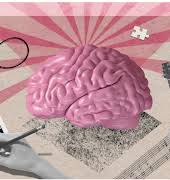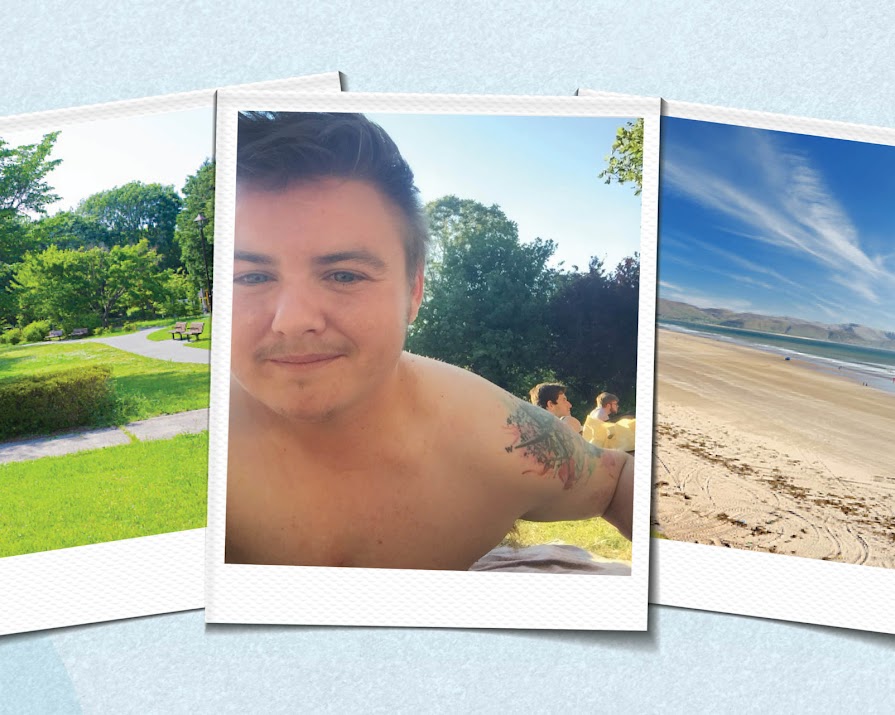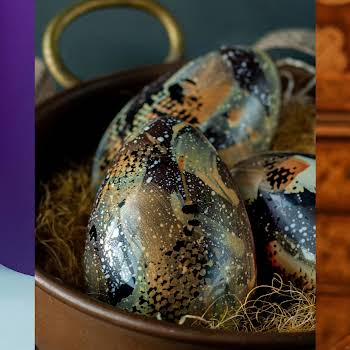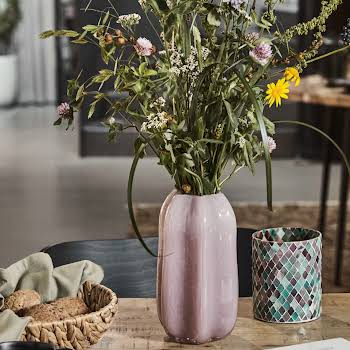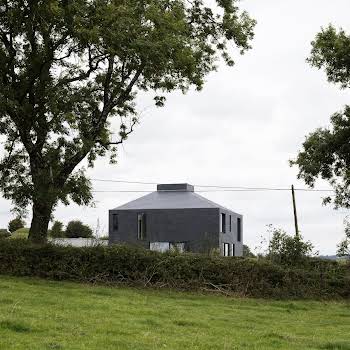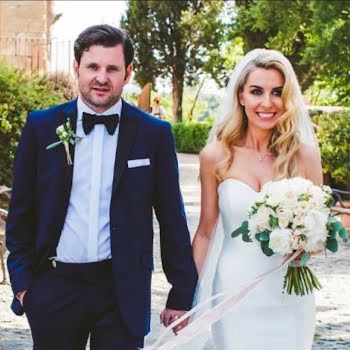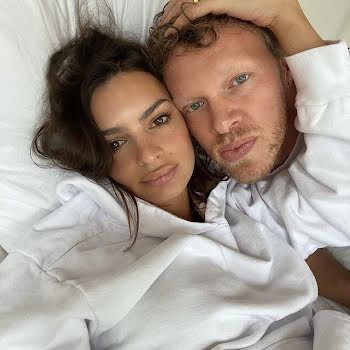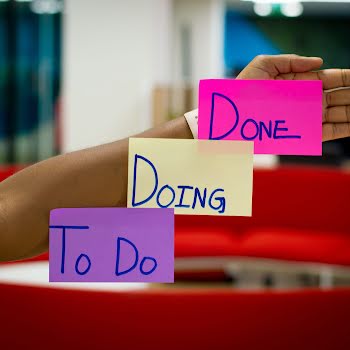“For the first time, I was able to take my top off in the park and just lie on the grass”
By Holly O'Neill
02nd Dec 2020
02nd Dec 2020
Noah Halpin is an activist and founder of the This Is Me Ireland transgender healthcare campaign. With Ireland’s lack of support for trans people, Noah was forced to travel abroad for top surgery. He raised his funding in just 36 hours on GoFundMe. Here he talks about the simple pleasures since having surgery and how far behind Ireland is when it comes to healthcare for transgender people.
Binding your chest can cause multiple health problems. When you’re binding, it squeezes around your chest and your spine and your ribcage so one of the problems I ended up developing was an acceleration of my spinal condition. I would have had to need surgery at some point, maybe not until I was in my 40s, but I’m going in for that surgery in the next couple of weeks.
Binding can also cause multiple bruised ribs. The recommended time for binding is eight hours a day, but oftentimes you start work early, end up having to go to an event after, then you’re binding 16 or 17 hours. In those instances, I’ve experienced bruised ribs and laboured breathing. I’m asthmatic so it caused a lot of breathing problems. After I got the surgery, almost all of it went away.
The worst thing about it was just pain, all the time. You always have a pain in your back, you always have a pain in your chest and around and under your arms. A lot of people bind quite tightly so would often experience cuts underarms where the material is very tight, or down the end of the ribcage — a lot of people get cut from the binder because it’s such a tight piece of material, literally squeezing you all the time.
There’s no choice. People say “well, you’re choosing to bind,” but a lot of us wouldn’t be able to leave our house if we didn’t.
In Ireland, we had a consultant who was performing top surgery publicly and privately and unfortunately, she stopped taking patients last year which means that now we don’t have any public options in the country for transgender people to have top surgery.
We do have one current private surgeon that has only newly started performing surgery for trans people. However, it’s only on a private basis, and the referral pathway to her is very limited. You would have to be already seeing the National Gender Service which there is quite a long wait for, and private surgery costs in Ireland are very expensive so the vast majority of trans people won’t be able to afford that. Unless you can afford that or you are already seeing the Gender Service, you must go abroad for top surgery.
It’s really important to note that my situation with GoFundMe was highly unusual. The majority of trans people absolutely don’t get their target within that short space of time. I’m lucky that I have a good network that was able to spread it far and wide. The average time it would take a trans person to raise that kind of funding is two and a half to three years. I was kind of overwhelmed.
For many years I distanced setting it up. I didn’t want to ask people for money, and I felt bad asking others to pay for my surgery but there was a point where I said, I will never, ever be able to afford this otherwise. It was my friends who were the ones who pushed me after years of humming and hawing about raising funds. They said, “you have to do this, you know you have to do this.” So I did.
One night I set it up and went to bed really embarrassed that I had set it up. I woke up the next day and beautiful messages were flying in, donations were flying in and people who couldn’t afford to donate were sharing it far and wide. It was very overwhelming and quite emotional.
Straightaway I booked the surgery in Poland. It’s not just surgery costs that you have to raise funds for, you have to be mindful that you need to raise funds for your travel and your accommodation, and that’s not for one person but two because you need to take a carer with you. There are lots of different factors to having to go abroad for surgery.
The main problem we have in Ireland is the model of care that we use. It’s extremely outdated. It’s a psychiatric model of care, meaning that trans people are still considered to be suffering from a psychiatric condition. We don’t work off international best practice standards of care, which are called the WPATH, the World Professional Association for Transgender Health. Their model of care is based on informed consent and that’s international best practice, and unfortunately, we’re well behind.
The number one thing we need to do in Ireland is change our model of care to one of an informed consent model, basing it off the fact that trans people don’t need to prove that they’re trans but they’re believed when they tell you that they are.
At the moment in Ireland, we need to have two psychiatric assessments before we’re even being put forward to an endocrinologist for hormone treatment. Hormone treatment is provided to cisgender people every single day by GPs. It’s a very simple, straightforward treatment but unfortunately, if you’re trans, you have to have psychiatric assessments and multidisciplinary team decisions.
We have one gender service in the country, and just before COVID-19, the waiting list was standing at about 18 to 20 months but obviously now that’s gonna jump a lot higher because of how little the service has been able to operate during lockdown.
We need to change the model of care, number one, because if we change the model of care, it could mean the GPs can provide us with our treatments and we won’t have to travel to one Dublin clinic. It also means we won’t require permission to have surgeries because if you’re already on hormone treatments in Ireland, you have to go get a third psychiatric assessment if you’ve decided you want surgery.
So there are roadblocks everywhere and you’re asking permission for every step of your transition, having to prove yourself every step of the way. We need to go from a psychiatric model and come up in line with the rest of the world, and create an informed consent model of care and open it up to the community, meaning that people don’t have to travel to Dublin for their appointments and can go to a clinic closer to them.
We need to basically stop gatekeeping the service and allow the doctors who are fully qualified to provide treatment to people.
There have been so many happy moments since having surgery that I don’t realise until they happen. They can be the tiniest thing for some people, like trying on clothes in a shop. Anytime I was in the men’s fitting room I’d be really paranoid that the curtains weren’t completely closed and someone would see in and be like, “that’s not a man in the changing room”.
Or wearing a white t-shirt for the first time — I could never wear white t-shirts because my binder always showed from underneath, so, the first time I could buy a white t-shirt after surgery was like a moment, I got emotional. It’s just a white t-shirt, a plain white t-shirt from H&M. I didn’t buy it, my friend Holly Shortall bought it for me as a gift after my surgery.
We were both in the changing room together and the two of us got a little bit emotional. There are moments like swimming for the first time. I hadn’t swam in many years because I couldn’t, there’s no swimsuit I could wear that hides my body. I was in a hotel in London in January, which happened to have a swimming pool. I went down to the changing room and I got nervous because I was in the men’s fitting room so I sat on the bench for a while, feeling really, really nervous.
Once I did it, it was like “oh my god, I haven’t swam in years and it’s amazing and I’m not worried” — I was worried people would look at my scars but scars can come from anywhere. Dancing shirtless too — in nightclubs with my friends, they’d always been able to do that but I’d be the one standing with the shirt on in the circle not being able to.
The other day I was able, for the first time, to take my top off in the park with my friend and just lie on the grass, and not have to worry.
Little moments like that are huge moments for us.
First time ever being able to sit shirtless in the sun in public and it feels great? Every time I have a new “First”, I’m reminded of all you wonderful people who helped me achieve my top surgery. Very grateful ?? pic.twitter.com/zRVcvkMQGo
— Noah Halpin (@Noah_Halpin) June 1, 2020
Another big part of it is intimacy and sexual relations with people. Prior to surgery, I would keep my t-shirts on. I’m not sure if it’s because it made me uncomfortable or if I was afraid that it would make the man I was with uncomfortable. The first time afterwards, I was like, “oh my god, my chest is on someone else’s chest.” Now, not having to worry about that with sexual intimacy, I haven’t felt that in a long time.
It leads to every aspect of your life and improves your overall mental health, physical health and sexual health. One surgery can really change your life when you’re a trans person.
When it comes to trans healthcare in Ireland and how behind we are, it’s time that our government and the HSE start to listen to trans voices. There’s no point in people who don’t have lived experiences making decisions on our behalf. When decisions are made about trans people, trans voices need to be involved in those decisions. The only experts in trans lives are trans people.
Digital illustration by Laura Kenny. Photography by Noah Halpin.
Read more: “My pronouns are he/they”: Actor Elliot Page announces he is transgender
Read more: My trans child: ‘Everyone’s journey is different, but seeing your child happy is every parent’s ultimate goal’
Read more: Hair Stories: Laylah Beattie on how her hair has shaped her life






